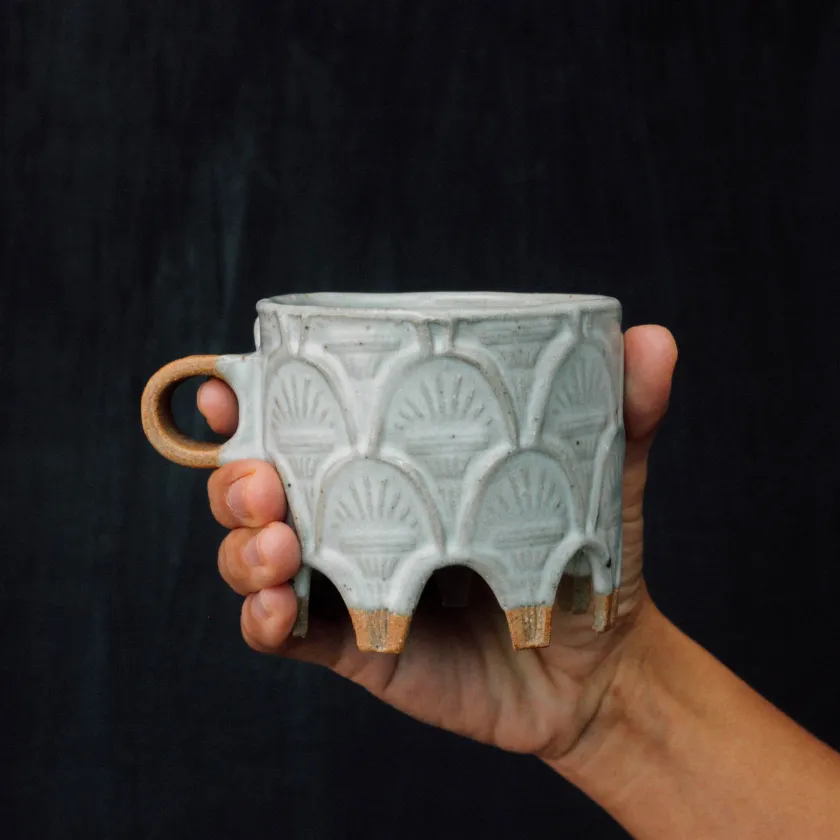Items produced by private citizens and the public that feature the constitution pedestal design and symbols reflecting the People's Party’s Six Principles come not only from the fifteen years following the 1932 Revolution, but also from the period following the 2014 coup. While items produced before were largely symbols celebrating and endorsing the new regime, newly-made objects not only commemorate the role of the People's Party in the past but also serve as tools reflecting the evolution of democratic ideals among newer generations. These newer items call for reforms and changes to unjust laws and emphasize the need for a more universal democratic governance. Among the various items produced since the 2014 coup, a set of ceramic ware stands out as an example of this evolving dynamic.
The ceramic set, produced by Boonchanin Soodtasom, an artist and ceramic producer from Bungalow Kam Studio in Pai, Mae Hong Son province, includes a coffee cup (8.5 x 11.5 x 9.0 cm), a mug (8.5 x 11.5 x 11.0 cm), and a vase (8.5 x 8.5 x 17 cm). All pieces feature a pattern of the constitution pedestal with six protruding legs (reflecting the Six Principles), and when turned over, they resemble a crown. This set was created to mark the 90th anniversary of the 1932 Revolution in 2022.
Although Boonchanin did not officially name the ceramic set, fans of the collection have informally called it the “Upside-Down Crown,” aligning with its appearance and the description provided by the artist: "Pick up that crown, turn it over, attach a handle to it, fill it with water, and distribute it to the people." This phrase is borrowed from Thomas Paine's Common Sense, a pamphlet that inspired Americans to unite and declare independence from Britain in the 18th century (translated into Thai by Pakavadi Veerapaspong and published by Bookscape in 2020). This collection was sold through the Facebook page “NAIYA Objects,” with 80% of the profits donated to the Ratsadonprasong Fund (a fund established to help raise donations for bail, and other expenses for the accused and defendants in freedom-related cases).
Prior to this, Boonchanin had produced several works reflecting the symbols of the People's Party, including the 1932 People's Party Plaque Mug, the 2020 People's Party Plaque Mug, and the People's Constitution Plate. Boonchanin explained his purpose for creating these works as follows: “Since I couldn’t participate in street protests with my friends, I chose to support the movement through what I do best—designing products and donating a portion of the profits to help bail people out. I also wanted to contribute to spreading the ideals of the People’s Party through everyday items, just as the People’s Party did in the past.”
Boonchanin further admitted that before the revival of the People's Party, he, like many others, had little knowledge of its history. However, the aftermath of the coup, the crackdown on pro-democracy groups, and the enforcement of unjust and inhumane laws led him to study this period seriously. This research fostered a sense of solidarity and inspired him to produce item after item linked to the People's Party. “Even without the People's Party in 1932, another group would have inevitably emerged. As a matter of course, it was time things changed. The awareness of equality was central to both past and present events, just as this generation seeks to make society more equal and just,” Boonchanin said.

